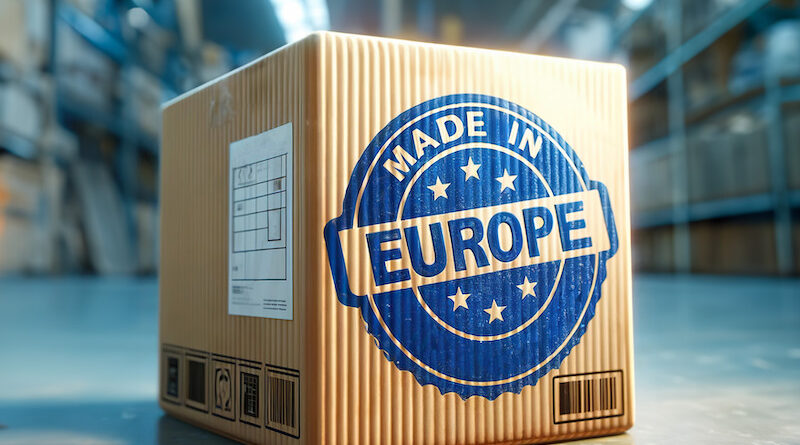
Against unfair competition, time has come for a Buy European Act.
As Europe stands at a crossroads in its industrial policy, reflecting on our position reveals a stark reality: we are increasingly dependent on non-European technologies, especially in clean technologies and digital infrastructure. This growing dependency is not just an economic issue—it’s a strategic vulnerability that affects our autonomy and our capacity to take control of our destiny.
European Union’s Increasing Dependency
The surge in reliance on external sources for crucial technologies has positioned Europe at a disadvantage.
This trend is particularly noticeable in sectors that are vital for the future, such as clean energy and digital services. The technologies that drive these sectors are predominantly sourced from outside Europe, leading to a significant transfer of economic benefits and job opportunities out of the continent. This shift not only undermines Europe’s industrial base but also its ability to innovate and compete on a global scale.
The New Economic Landscape We Face
The current global market dynamics complicate Europe’s position further. We face aggressive competition from countries like China, which has captured large swathes of the market with its low-cost solar panels, batteries and now EV vehicles. A startling 95% of solar panels utilized within the EU are imported from China, placing the EU at a significant strategic disadvantage in the burgeoning clean energy sector. This dependence extends beyond just finite products; China also controls a dominant 96% of the global solar wafer production, with EU companies barely making up 1% of the market. This vast disparity not only underscores the EU’s vulnerability but also the urgency to act.
Similarly, the United States policies effectively prioritize domestic products. The Buy American Act specifically prioritizes domestic products in government procurement, and the Inflation Reduction Act (IRA) earmarks an unprecedented $369 billion in subsidies to bolster clean technologies, showcasing a robust commitment to both national industry and environmental sustainability.
Europe stands at a critical juncture, facing intensifying competition not from the inherent competitiveness of other economies but from their unfair trade practices and substantial state support.
Europe’s Response to Unfair Competition
Regarding unfair competition, recent moves by the European Commission to investigate foreign subsidies on products like solar panels and wind turbines imported from China are indicative of a less naive European stance. However, these investigations, while necessary, are limited in scope and slow to produce changes. More importantly, these measures are reactive. Often, our European industries have already suffered or disappeared by the time investigations yield results and corrective actions are implemented. They highlight the need for more systemic solutions to enhance Europe’s economic sovereignty and reduce reliance on critical technologies from geopolitical rivals.
Towards a Buy European Act
This backdrop sets the stage for proposing a transformative policy: the “Buy European Act” (BEA).
This initiative would be about pragmatism ensuring that when European alternatives are available, they are preferred in public procurement processes.
This approach would not only bolster European industries but also support the shift towards cleaner and more sustainable technologies. It’s about making strategic choices that secure long-term economic and environmental benefits for Europe. It is not protectionism, but solely having a level playing field for our European economy, using a tool that we are the only one not using.
Implementing such an act would have several benefits:
- Economic Security: Reducing dependency on critical imports enhances Europe’s autonomy and resilience in global supply chains.
- Job Creation: Supporting local industries directly contributes to job preservation and creation within the EU.
- Environmental Impact: Promoting the adoption of European-made green technology aids in achieving the EU’s ambitious climate targets.
A gradual implementation
The road to implementing a Buy European Act would involve some challenges. It involves balancing market openness with strategic autonomy, ensuring European industries remain competitive without being isolated from global competition. Additionally, the act would need to be carefully phased to allow industries and procurement processes to adapt without disruption.
Nevertheless, the Buy European Act would represent a critical step toward reasserting Europe’s economic leadership and securing its technological future.
It is a call to strengthen our internal market while affirming our commitment to sustainable development and strategic autonomy. As Europe debates its next steps, this act could serve as a cornerstone of a more resilient and competitive European economy.
As we continue to discuss and refine this proposal, it is crucial for all stakeholders policymakers, industry leaders, and citizens to engage actively in shaping a policy framework that supports Europe’s economic sovereignty and sustainable growth.
It is only at the European level that we can implement an industrial and economic policy that truly protects our citizens.




